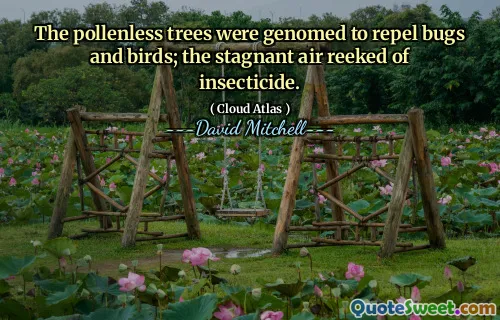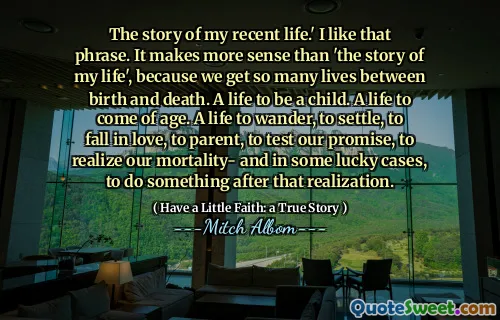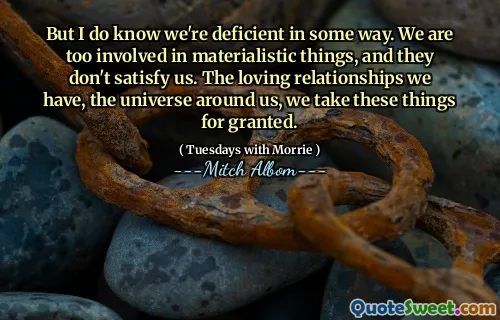But it is only since I have ceased to live that I think of these things and the other things. It is in the tranquillity of decomposition that I remember the long confused emotion which was my life, and that I judge it, as it is said that God will judge me, and with no less impertinence. To decompose is to live too, I know, I know, don't torment me, but one sometimes forgets.
In the passage, the speaker reflects on the nature of existence and self-awareness in the context of death and decay. They express that it is only after they have stopped living that they find clarity, allowing them to contemplate the tumultuous emotions of their life. This introspection occurs in a state of stillness associated with decomposition, hinting at a profound connection between life and the process of dying.
The speaker implies that judgment, both personal and divine, happens amidst this tranquility. Despite acknowledging the continuity of experience even in death, they admit that it’s easy to forget this connection. The narrative conveys a complex relationship with life, death, and the reflections that arise in the stillness of decay.





